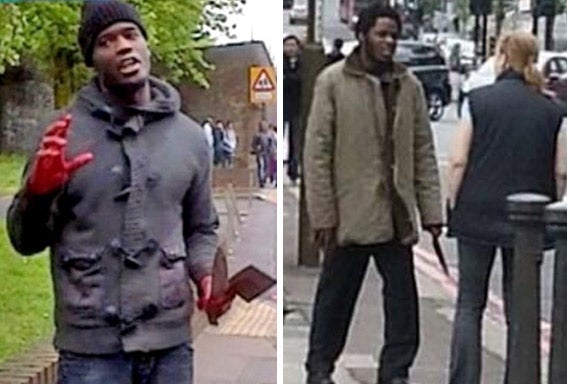Did MI5 blunder over Woolwich 'killers'? We will never know
Intelligence and Security Committee will not present findings to the public

Your support helps us to tell the story
From reproductive rights to climate change to Big Tech, The Independent is on the ground when the story is developing. Whether it's investigating the financials of Elon Musk's pro-Trump PAC or producing our latest documentary, 'The A Word', which shines a light on the American women fighting for reproductive rights, we know how important it is to parse out the facts from the messaging.
At such a critical moment in US history, we need reporters on the ground. Your donation allows us to keep sending journalists to speak to both sides of the story.
The Independent is trusted by Americans across the entire political spectrum. And unlike many other quality news outlets, we choose not to lock Americans out of our reporting and analysis with paywalls. We believe quality journalism should be available to everyone, paid for by those who can afford it.
Your support makes all the difference.The full story of whether MI5 blundered by failing to act on suspicions about the suspected Woolwich killers – which is to be investigated by MPs and peers – will never be shared with the public.
The Intelligence and Security Committee, which is made up of MPs and peers, will investigate security files held on the killers, and also examine the “nightmare worry” that “lone wolves” slipped through the net to carry out Wednesday’s atrocity, which raises concerns that others could follow suit.
Whitehall sources have confirmed that the two suspects in custody had been known to the security services, but neither was assessed to present an immediate danger.
The committee will present its findings to David Cameron, but its conclusions will never be known in full as the versions of its reports submitted to Parliament are heavily redacted.
Its chairman, Sir Malcolm Rifkind, has already been briefed on the attack by MI5’s new Director-General, Andrew Parker. The panel is expected to hold its first private sessions soon after Parliament returns on 3 June with a view to submitting its report to the Prime Minister in the autumn.
The committee consists of seven senior MPs and peers who are given high-level security clearance. It has wide-ranging powers to call witnesses from all levels of the security services, although senior officials such as the deputy Director-General, who has responsibility for operations against domestic terrorism, are more likely to be summoned. They can either give evidence in person or in writing.
A committee source told The Independent that the Prime Minister wanted it to “dig deeply” to find whether there were intelligence failings or the attacks could have been foreseen.
Members will examine to what extent the alleged murderers were “on the radar” and whether there was any “culpability” on the part of the security service, the source said.
But they stressed: “There are thousands of people who are on the radar as would-be suspects. Only with a very small fraction of those are you able to provide that level of surveillance so that you know what each and every one of their movements is.”
The men shot and arrested by the police for the murder of Drummer Lee Rigby were seen in the company of Islamists under surveillance over possible terrorist planning. But they were not themselves suspected of plotting acts of violence, according to security sources.
Michael Adebolajo and Michael Adebowale were, it is claimed, on the fringes of militancy and no information either from informants or electronic intercepts had pointed towards them carrying out such a killing.
Officials insist that there had been no “chatter” that they were planning to target and behead a soldier. This, it is said, indicated the decision to do so was taken at a very late stage and then very few people may have been aware of what was about to happen.
One of the two, it is believed Adebolajo, was on his way to Somalia last year where he was allegedly trying to join the Islamist militia al-Shabaab. He was stopped at a London airport before boarding a flight to the Kenyan capital, Nairobi, and he turned back.
There was no evidence that he was in liaison with members inside Somalia and there are legal difficulties in prosecuting someone who is merely travelling to another country.
Dozens of young British Muslims go abroad every year for jihad, security officials point out, with up to 100 joining the rebels in Syria – the side the British Government supports in the civil war – and little can be done to stop them.
Omar Bakri Mohammed, the radical Islamist cleric Adebolajo was exposed to who claimed to have converted him, is banned from the UK over extremist activities including alleged links to al-Qa’ida. At the same time he is active in recruiting fighters in the Lebanon, where he now lives, for the Syrian opposition – some of whom will end up with equipment being supplied by the UK Government.
MI5 and the police hold that these considerations as well as the need to prioritise limited resources mean that not everyone engaged in radical Islamist acts can be kept under surveillance.
However, if it transpires that the importance of the two killers was underestimated, and that vital clues have been missed, there would be severe repercussions for the Security Service and Scotland Yard.
Join our commenting forum
Join thought-provoking conversations, follow other Independent readers and see their replies
Comments